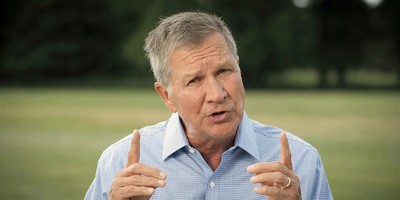NEW YORK – Eight years ago, President George W. Bush stood on a pile of rubble and told New Yorkers, “I can hear you. The rest of the world hears you. And the people who knocked these buildings down will hear all of us soon.”
Perhaps President Barack Obama should take a cue from his predecessor and hear what New Yorkers say about his administration’s decision to prosecute five Sept. 11 suspects here.
Finding a New Yorker who is happy about that is difficult.

“I don’t see the upside,” said Louis Polanco, a retired New York City cop. “The unprecedented security, the anti-American rhetoric coming from the defendants and the overall physiological effect on this city, all of it is bad news.”
Blocks from where the World Trade Centers stood, a grand jury began hearing evidence last week against Khalid Sheikh Mohammed (often referred to as “KSM”), the self-professed mastermind of the 2001 attacks, and four accused accomplices.
Last month Attorney General Eric Holder decided to bring the cases to a federal court in Manhattan. Late last week he made an unannounced visit to the courthouse, to inspect security for the pending trial.
“It is a reckless decision on his part,” said New Yorker Harold Mandelbaum. “This trial should be held by a military tribunal, not here where it all happened.”
Mandelbaum, 42, an accountant in Manhattan, argues that the plotters claim to be soldiers and should be tried as soldiers, not as civilians.
Nancy Kassop, a State University of New York constitutional law professor, sees “practical considerations to support Holder’s decision,” including the fact that this “is where the evidence and witnesses are.”
Recommended
Standard criminal procedure, she says, dictates that a trial be held in the jurisdiction where a criminal act is committed, absent a compelling reason to do otherwise.
So, on purely conventional grounds for a typical crime (although 9/11 was hardly typical), setting the trial where the crime was committed would be expected – and required.
Yet here is what’s on so many New York minds: The trial will be a magnet for other terrorists to demonstrate outside the court, to disrupt the trial – or, worse, to attack again.
Then there’s the cost of the extraordinary law-enforcement presence that will be needed – a huge drain on a city that is struggling financially.
Terrorism expert Steve Emerson believes that, given a defendant’s right to discovery of evidence in a criminal trial, KSM undoubtedly will demand to see national-security secrets: “He will use the platform to broadcast, in free publicity, what he could never achieve elsewhere.”
Holder and Obama both have said the decision to hold the trial here was rooted in showing the world the fairness of the United States – making their decision a political one.
For any prosecutor, considering the politics of a criminal case is a dangerous calculation.
For Holder, as well as for the nation, the stakes just could not be higher in prosecuting a defendant for what he has called "the crime of the century."
Holder has exuded confidence when asked if he can get a conviction; he refers to evidence that the public has not yet seen and that is not tainted by allegations of torture.
Yet the decision to prosecute KSM here “did not bring forth much favorable public opinion,” State University’s Kassop says, “so it’s hard to see what political benefit there is … for Holder or for the Obama administration, at least at this point.”
“Will it make New Yorkers more willing to support the most aggressive antiterrorism policies … to try to insure that this never happens again?” she asks. “(It’s) just hard to say ... .”
What is certain, though, is that holding the trial here will force New Yorkers to relive their intensely personal experiences of Sept. 11. James Arase, a cabbie with a brilliant smile, remembers it as a “terrible day, terrible.” And then his smile disappears.
“Sorry, I don’t want the trial here, not because I am afraid or any other New Yorker is afraid,” he explains. “We just don’t need to relive that horror.”

























Join the conversation as a VIP Member